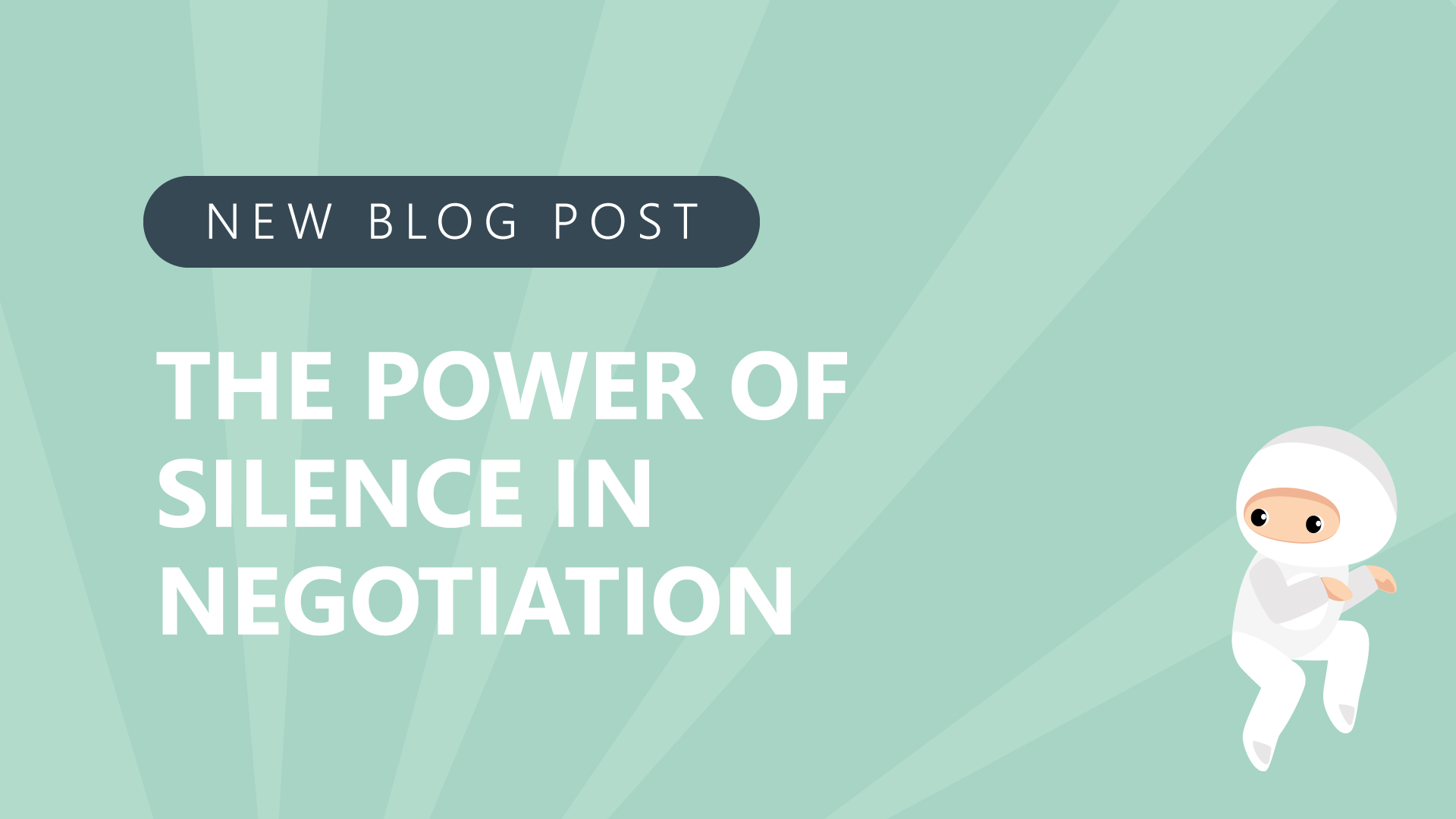Silence can be deafening. Silence during a negotiation can be uncomfortable—but it has a purpose. When leveraged correctly, the power of silence is impactful. So how do we break past our discomfort with silence? How do we move the negotiation in a direction where silence has a purpose?
Alexandra Carter spoke about the power of silence in episode 141 of the Negotiations Ninja podcast. She has seen powerful breakthroughs in negotiations due to silence? In this blog post, we explore what that looks like.
Sometimes you just need time to pass
Alexandra was involved in a court case where two parties ended up in court. The judge looked at her and gave her one hour to solve the issue outside the court. So she sat down with the ex-business partners (and ex-couple) and simply asked why they were there. Both parties started weeping. She allowed them 45 minutes of space to grieve the end of their relationship. When the silence became deafening, one of the parties lifted their head and said “Let’s settle this.”
Someone always tries to fill the silence
As a litigator, Alexandra has used silence in adversarial situations. In one of her examples, she was involved in deposing some members of the Enron board of directors. She’d ask open-ended questions and get people to over-answer with things their lawyer didn’t want them to say.
The power of silence forces people to fill the silence with something they were thinking—but trying not to say. Alexandra learned quickly: “The more I shut up in negotiation, or even at home with my family, the more I learn, and the better negotiations I have.” When you give people ample opportunity to sit in silence, they will eventually give.
You NEED to ask the right questions
Alexandra points out that “Sometimes the silence is proportionate to how good a question you just asked.” When you ask a poignant question there should be silence on the other end. The right question should leave your counterpart in contemplation. The right question is compelling and thought-provoking.
Alexandra believes that the right questions are so immensely important that she wrote a book about it—Ask for More. In the book, she redefines the concept of negotiation as any conversation in which you are steering the relationship—including the conversations you have with yourself.
In her book, she shares 10 research-backed questions. Five of the questions she refers to as “mirror questions” that you ask yourself every day. The other five questions are “window questions” described as powerful questions to ask someone else.
Alexandra has seen incredible results from these questions. She firmly believes that when we ask better questions, we get better answers and therefore better results. To hear more of her expert advice on the power of silence in negotiation, listen to episode 141 of the Negotiations Ninja podcast!

